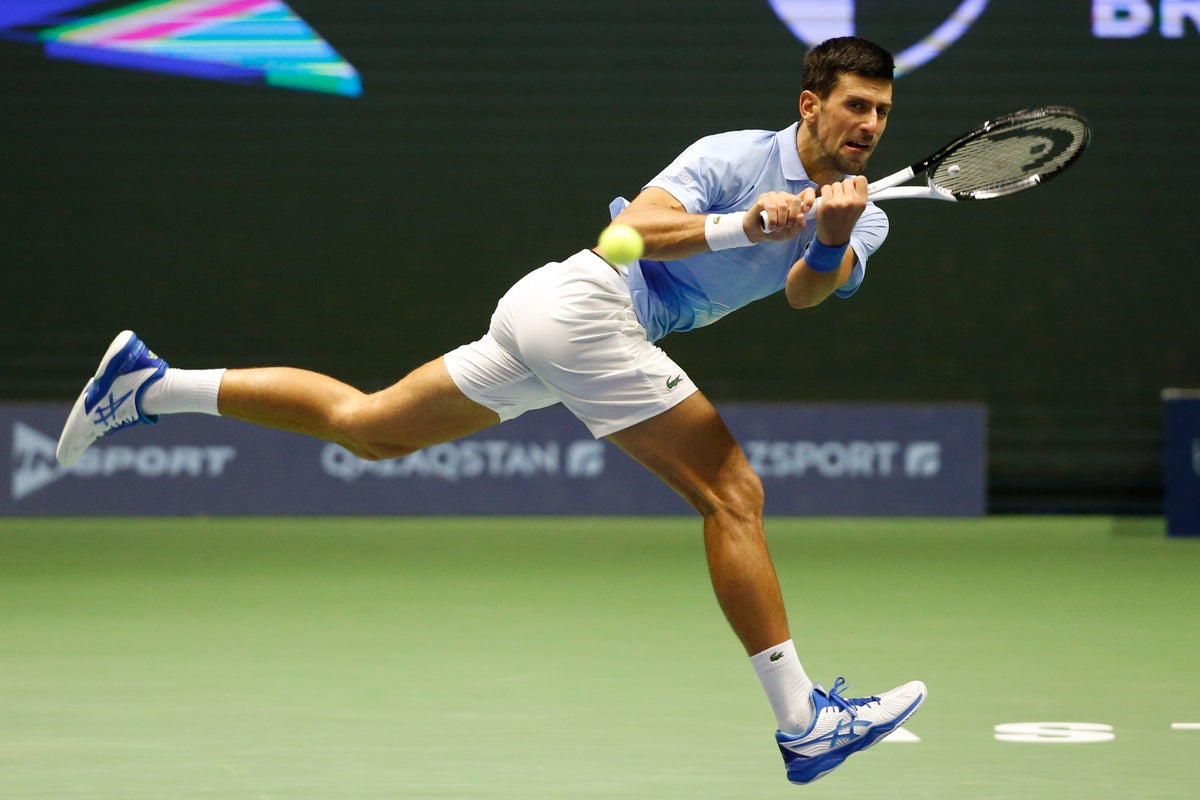
A Melbourne-based immigration lawyer says Novak Djokovic will likely be successful if he applies for a visa to enter Australia for the season-opening tennis major next year despite his high-profile deportation in January.
It could be as simple as writing to the Australian Border Force, explaining his exceptional circumstances and asking for any ban on re-entry to be waived.
The 21-time Grand Slam singles champion wasn’t allowed to defend his Australian Open title this year after a tumultuous 10-day legal saga over his COVID-19 vaccination status that culminated with his visa being revoked on the eve of the tournament.
The meant he could face an exclusion period of up to three years, but Australian Border Force officials have said those can be waived in certain circumstances — and that each case would be assessed on its merits.
And Djokovic has a case. He arrived at Melbourne Airport as the world's top-ranked tennis player with a visa he'd obtained online and what he believed to be a valid medical exemption to the country's strict laws for unvaccinated travelers because it was endorsed by Tennis Australia and the government of Victoria state, which hosts the tournament.
Confusion reigned, generating global headlines. As it transpired, that medical exemption allowed him entry to the tournament, which required all players, fans and officials to be vaccinated for the coronavirus, but not necessarily to enter the country. It was rejected by the Australian Border Force.
Australia’s Immigration Minister Alex Hawke ultimately used discretionary powers to cancel Djokovic’s visa on character grounds, stating he was a “talisman of a community of anti-vaccine sentiment.”
Immigration lawyer Kon-ming Tsai said that in his opinion, it would “be in Australia’s best interests” to allow Djokovic entry for the 2023 tournament.
“There is no risk factor here with allowing him back in," Tsai said in a telephone interview on Thursday with The Associated Press. "He’s not going to create a problem for the community. He is one of the world’s best tennis players and will be able to pull in a lot of foreign visitors.”
Djokovic has not officially said if he will apply for a visa for Australia, with his media group in Belgrade saying it so far has no information regarding nine-time Australian Open winner's plans regarding the Jan. 16-29 tournament.
Australia has had a change of government and changed its border rules this year and, since July 6, incoming travelers no longer have to provide proof of COVID-19 vaccinations. That removes one major barrier to entry for Djokovic.
The 35-year-old Serbian star, who has won recent tournaments in Kazakhstan and Israel, can now apply to new Immigration Minister Andrew Giles to reconsider his visa status.
In his favor, Djokovic left Australia quickly after his visa was revoked, he has not publicly criticized Australian authorities and will only be seeking a temporary visa.
The first step in the process is to make an official visa application, starting a two-stage procedure.
As the Department of Home Affairs website explains, applicants in Djokovic's circumstances must explain in writing to Australian Border Force why the exclusion period should be put aside — “you must show us that there are compassionate or compelling circumstances to put aside your re-entry ban and grant you the visa."
The ABF does not comment on individual cases as a matter of policy.
A review into Djokovic’s visa saga led to Tennis Australia outsourcing visa applications by players and their entourages to a company specializing in immigration matters.
That company, Absolute Immigration, has been asked for comment on Djokovic's status but did not immediately respond.
At the 2023 Australian Open launch at Melbourne Park on Wednesday, tournament director Craig Tiley said Tennis Australia wants to welcome Djokovic back but can't give him any official support with lobbying to the Australian government.
“It is not a matter we can lobby on. It is a matter that definitely stays between the two of them,” Tiley said, referring to Djokovic and the Australian government.
Tiley was heavily criticized for his role in the confusion which led to Djokovic being detained in an immigration hotel.
After meeting up with him in London last month, Tiley said he believes Djokovic holds no bitterness about the saga.
“He said that he would obviously love to come back to Australia but he knows it’s going to be an ultimate decision for the federal government and he accepts that,” Tiley, who is also the Tennis Australia chief executive, said. “If you notice, he is playing a lot of tennis at the end of the year in anticipation and hope there is a successful outcome with his application. But that is up to him.”
If Djokovic goes that route, the Malaysian-born Tsai said his decade-long experience of dealing with Australian immigration laws made him think it would likely result in a decision in Djokovic’s favor.
“Bottom line is that it’s in Australia’s best interest to lift the ban and have Djokovic return,” Tsai said.
___
Courtney Walsh in Melbourne, Australia and Associated Press Writer Dusan Stojanovic in Belgrade contributed to this story.







